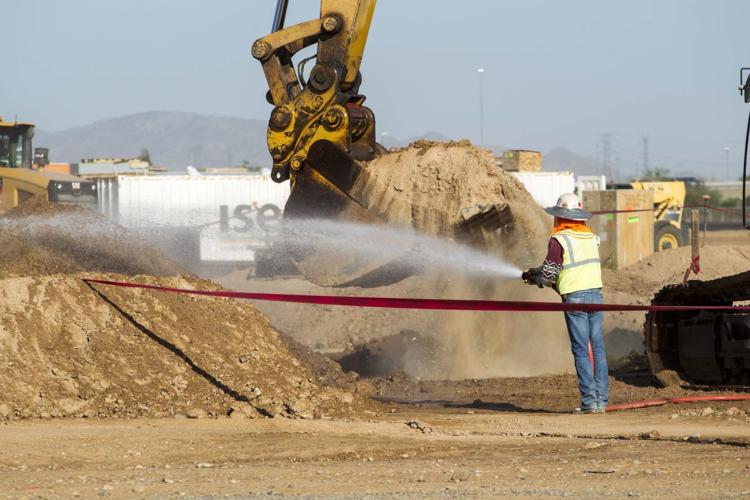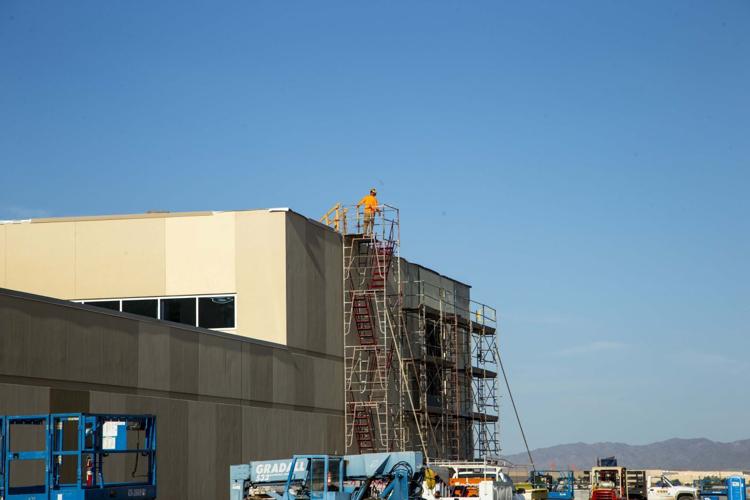PHOENIX — The state Court of Appeals has quashed a bid by a Glendale neighborhood group to force the council to reconsider its support of tribal gaming on the city’s west side.
In a unanimous opinion Friday, the judges rejected arguments by Gary Hirsch that voters have the right to overturn both the council’s resolution ending its opposition to the casino as well as a deal it reached with the Tohono O’odham Nation to share in the profits.
Judge Michael Brown, writing for the court, said only “legislative acts” by the council can be placed on the ballot through referendum petitions. And he said neither action meets that test.
An appeal to the state Supreme Court is possible.
The question of whether Glendale is forced to rescind its support of the casino likely will have no impact on the two lawsuits over the legality of the facility still working their way through federal courts.
But the official position of the city most affected by gaming facility could affect whether the U.S. Senate approves a House-passed measure that would deny the tribe the ability to operate any kind of gaming on the site until 2027.
Overturning the deal also could have another potential impact.
Hirsch said the deal also includes a commitment not to oppose expansion of the reservation on the land the tribe owns adjacent to the casino site in Glendale. He said unwinding the deal would pave the way for developing the property in a way he said will better benefit the city.
Using a 1986 law to compensate for lands flooded by a federal dam project, the Tohono O’odham bought the property more than a decade ago.
When the tribe unveiled its true ownership and casino plans in 2009 the council registered its opposition, even trying to annex the tribe’s property without its permission. That would have kept the land from becoming part of the reservation, a necessary precursor to operating a casino.
Last year, however, the city council voted to oppose the federal legislation and support the casino. That culminated in a deal for the city to get more than $25 million over the next two decades from the tribe in exchange for supporting the casino.
That deal provided for an immediate $500,000 payment to the city within 10 days of approval.
It also it says that once gaming starts the city will get $1.4 million a year, with that increasing annually by 2 percent.
And the tribe will provide another $100,000 a year to promote Glendale and the West Valley “as a premier destination for business and leisure travelers.”
Glendale Councilman Gary Sherwood said the pact is a good deal for the city. He said it not only provides a guaranteed source of money but that the $550 million project anchored by a casino and hotel could help spur other development in the area.
Hirsch disagreed. And using funds from the Gila River Indian Community that opposes the Tohono O’odham casino, he collected signatures to force a public vote.
But City Clerk Pam Hanna refused put the issues on the ballot, saying they weren’t subject to referendum.
In his ruling, Brown said the resolution simply expressed support for the project and urged state officials to withdraw their opposition.
“Mere expressions of support, and encouraging other entities and individuals to share the same viewpoint, are not substantive measures,” Brown wrote. And he said that the resolution simply “reflects the city council’s position on a matter over which it has no legislative authority to regulate.”
Separately, Brown also said the city council was entitled to enter into the settlement agreement.





